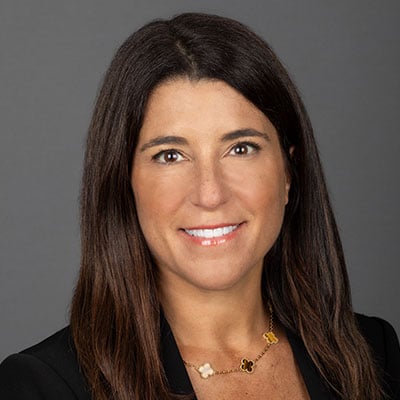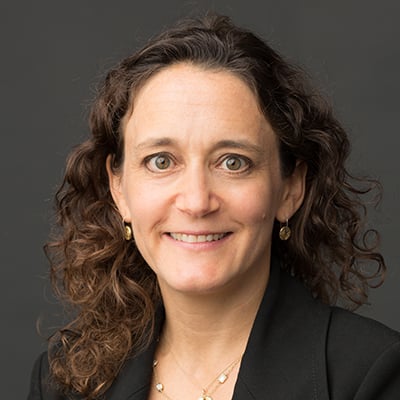Kirkland Litigators Say #MeToo Is Here to Stay — And Companies Need to Be Ready
Remember the “Boom Boom Room” suit against Smith Barney? The Tailhook convention? Anita Hill and the Coke can? Bill Clinton and Paula Jones?
As a nation, we’ve had moments of reckoning with sexual harassment before. But Kirkland & Ellis partners Lauren Casazza and Kim Nemirow believe #MeToo is different.
“I think this is a permanent change,” said Casazza, a New York-based litigator who established Kirkland’s crisis communications and management practice group.
For the past year, the duo have been busy counseling clients on how to avoid or mitigate the risk associated with harassment claims in the workplace—a concern they say is now on par with cybersecurity breaches and compliance with international corruption laws.
A pair of securities class actions against Papa John’s and CBS last week illustrate the risks. The plaintiffs in both suits allege that the companies touted their codes of ethics in SEC filings, but failed to enforce them—making them materially false or misleading. They also say the companies failed to disclose misconduct by executives.
Wynn Resorts and 21st Century Fox have also faced similar litigation in the wake of allegations against leaders including Steve Wynn and Roger Ailes.
“The reputational risk hits fast and furiously,” Nemirow said. “Employers are recognizing the importance of workplace compliance from a reputational perspective, to mitigate the risk before it happens.”
Consider the genesis of the CBS suit, which was filed by Pomerantz lawyers Joseph Alexander Hood II and Jeremy Alan Lieberman on Aug. 27 in U.S. District Court for the Southern District of New York.
The suit points to an article in The New Yorker by Ronan Farrow published on Aug. 6, “Les Moonves and CBS Face Allegations of Sexual Misconduct.”
“Six women who had professional dealings with him told me that, between the nineteen-eighties and the late aughts, Moonves sexually harassed them. Four described forcible touching or kissing during business meetings, in what they said appeared to be a practiced routine,” Farrow wrote.
The article (and an advance report about it in The New York Times) caused CBS stock to drop 6 percent.
In the suit, the plaintiffs in painful detail quote CBS statements and filings about “company values” and “responsibility to uphold the highest standards of ethical and appropriate business actions” and “zero tolerance” for sexual harassment.
Or not.
CBS failed to disclose that Moonves “had engaged in widespread workplace sexual harassment at CBS; (ii) CBS’s enforcement of its own purported policies was inadequate to prevent the foregoing conduct; (iii) the foregoing conduct, when revealed, would foreseeably subject CBS to heightened legal liability and impede the ability of key CBS personnel to execute the company’s business strategy and (iv) as a result, CBS’s public statements were materially false and misleading at all relevant times,” the complaint states.
CBS has reportedly hired Debevoise & Plimpton and Covington & Burling to conduct an internal investigation, and Moonves, who has apologized for making “some women uncomfortable,” has yet to be fired or resign.
It’s entirely possible that the securities complaint won’t stick. Still, the fact that plaintiffs lawyers are trying it out as a theory is a red flag to all companies.
That’s where lawyers like Casazza and Nemirow come in.
They often start by looking at a company’s human resources department, which may be focused far more on payroll and benefits than harassment prevention. The Kirkland lawyers help with training and operations, including how complaints are reported, documented and responded to. And if there’s a problem, they advise on what to say about it, both externally and internally.
It’s a delicate process, especially in the early stages. “One tweet can make a difference,” Casazza said.
At the same time, the system has to be fair to the accused. “There are two sides to every story,” Casazza said, and companies have also faced liability from people who were terminated after being wrongly accused.
Another clear signal of #MeToo’s impact is in the private equity and M&A space.
The Kirkland lawyers said they’re now seeing so-called “Weinstein clauses” in the representations and warranties section. It’s an all-new provision where the target company is required to disclose sexual harassment allegations or settlements involving officers or directors.
Overall, employers are more often recognizing that the answer to sexual harassment complaints isn’t to hide the problem by forcing plaintiffs into arbitration.
“The tides are turning,” Casazza said. “There are obviously benefits in having confidential arbitration of issues.” But of late, employees and other stakeholders are “reacting very negatively to being forced to arbitrate, and to confidentiality provisions. There’s more and more pushback.”
And even if the misconduct is kept secret, Nemirow stressed that it’s still imperative for the company ‘to review the conduct and remediate.”
“The clients we’re working with are trying to get it right,” she said.
Casazza added, “I have two daughters. I tell them I try to help people at work … It’s very gratifying to be a part of this issue, to try to make things better.”
REPRINTED WITH PERMISSION FROM THE SEPTEMBER 5, 2018 EDITION OF THE AM LAW LITIGATION DAILY © 2018 ALM MEDIA INC. ALL RIGHTS RESERVED. FURTHER DUPLICATION WITHOUT PERMISSION IS PROHIBITED


